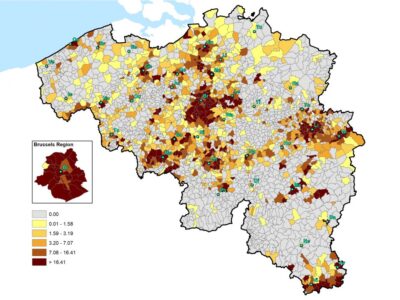EPIBEL @Campop
On 15 March 2023, Jord Hanus will present EPIBEL's latest work in progress on epidemics and their societal impacts and determinants to the Cambridge Group for the History of Population and Social Structure (Campop): "Territorial pervasiveness of epidemics and health emergencies in the Southern Netherlands/Belgium, 1650-1920". Stay tuned for a…
